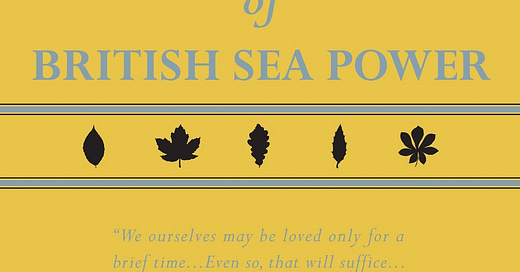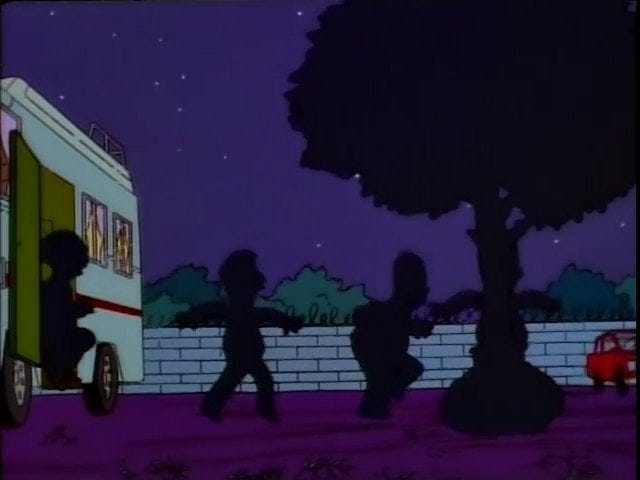Oh bring it in and let us see it
[British] Sea Power - 'A Wooden Horse' (The Decline of British Sea Power - 2003)
In 2007, Scott Plagenhoef, then Managing Editor of Pitchfork, reflected on Belle & Sebastian in his book for the 33 1/3 series, specifically focusing on their 1996 album If You’re Feeling Sinister. Plagenhoef described the band as one of the "last pre-internet bands," capturing an era where bands could maintain a sense of mystery and elusiveness.
In the mid-1990s, gathering in-depth information about musicians was significantly more challenging for fans. Social media, streaming platforms, and widespread online interviews hadn’t yet emerged as part of the music landscape. This meant that bands like Belle & Sebastian, who were somewhat shy and enigmatic, could exist in a semi-anonymity. Fans had to rely on physical media—albums, magazines, and occasional television appearances—for any insights into the band. This added to their allure, as details about their personal lives, their creative process, and even tour information were harder to come by, creating an air of mystique.of
The best looking girls are staying inside
Belle & Sebastian are one of the last British guitar bands of the 20th Century. They had a story, an ethos, something to pour over, and artwork to gawp at. A band whose debut LP was on vinyl, not on CD, despite being 1996, and only had a press of a thousand copies. It is hard to imagine the band keeping that enigmatic allure and mysterious charm if the …
Despite forming in the 2000s, (British) Sea Power cultivated a cult1 following reminiscent of pre-internet bands. They were known for decorating their concert stages with foliage and having an acquaintance dance in the crowd dressed in a bear costume. The symbiotic relationship was displayed by more and more of the crowd, who started to show up with twigs and branches. They sold quirky merchandise at shows and online, including a dizzying array of T-shirts, porcelain mugs, tea towels, and, eventually, beer. They also combined this with a consistent approach to the look and feel of their discography’s artwork with a distinctive aping of fonts of Second World War imagery long before anyone had a cushion that said: “Keep Calm and Carry On.”
The band’s debut album, The Decline of British Sea Power, is one of my all-time favourites. For anyone unfamiliar, it’s a record that naturally appealed to a nineteen-year-old me, who was already a fan of The Pixies, Bowie, The Smiths, New Order, and Joy Division while starting to discover bands like The Fall, The Cure, and Echo & The Bunnymen. British Sea Power sounded both out of time and perfectly of the moment. They occupied the same space as the bands emerging in 2003-2004, who borrowed heavily from post-punk’s origins but alternated between sounding big and cinematic and angular and claustrophobic.
As tempting as it is to wax lyrical on the whole album and what delights are captured within, I will obviously and gladly talk about the closing track ‘A Wooden Horse’. The band have ‘Lately’ as the long, epic finishing to the album. It howls and wails like a North Sea gale, but those extremes provide the opportunity for the relative respite and calmer waters of the closing track. Like much of their work, there are historical and literary references to hang on to (in ‘Apologies To Insect Life’, they dwell on Dostoevsky, Graham Greene and Kaiser Wilhelm II) and, unsurprisingly, on a song called ‘A Wooden Horse’ it is Greek Mythology and the Trojan Horse they are alluding to. Suggesting that if it were an option, you’d build one for someone, which shows a slightly unerring willingness to engage in subterfuge or present a deceptive offering to test someone's motives. Contemporary listeners might feel that it is referencing the idea that tactics that work in Greek mythology might be somewhat outdated.
Musically, the song encapsulates much of what makes the band so distinctive. The restrained, repetitive, poetic lyrics accompany a sweeping and restrained musical arrangement. There’s a quiet, pastoral sense, and you can’t help but picture waves gently lapping at a rugged coastal shore. There is a building of intensity, but it is nothing like the wicked tempests that preceded it.
The references to mythology, war, and literature are there for those who want to dig deeper. Unlike some of the bands that emerged at this point the references are not the only item of interest - the nods don’t overshadow the raw emotionality and atmospheric grandeur that the music evokes. Like an episode of the Simpsons, you can engage with it on multiple levels—through the cinematic scale of their soundscapes or the intricate layers of meaning buried in their lyrics.
I have seen the band dozens of times live, though that doesn’t compete with others who have seen them over 400 times. They remain one of my favourites; I saw in 2011 with them at Koko, and I turned up with a branch at Glastonbury in 2009, I persuaded people to come to their 2007 gig in Reading for my birthday and the same venue The Killers supported them.
Even after all these years, I often return to this album, particularly when I want to be transported to that rugged coastal world they conjure so vividly. It's the kind of record that doesn’t just age well—it reveals more of itself with each listen, as tens of listens turn into hundreds, like an old friend who still has new stories to tell. While British Sea Power have evolved since The Decline, not least dropping the British part of their name, something about this debut remains unmatched in its sense of adventure and mystery and that stumbling across something new and exciting that is why we listen to new music in the first place.
Are cults cultivated? I guess they are given the name.







Great post. I love this band and especially this record. Carrion is an all time fav song somewhere on the list, whole album is great. I also love open season and do you like rock music, but struggle with the some of the catalog. Saw them three times at various points, included when they toured this record. Also like Brakes!
A magnificent album, one that conjures desolate, windswept and wild landscapes, lonely clifftops and moors. They've released some great music since, but never quite matched TDOBSP. Up there in my Top 20 best albums of all time.